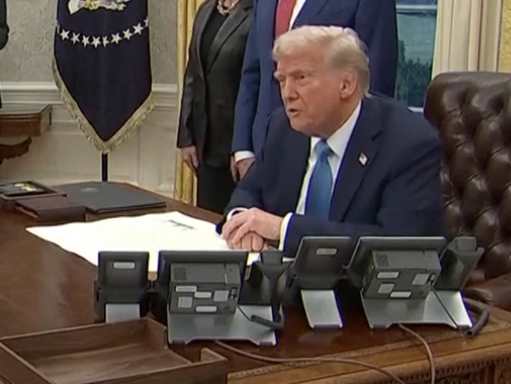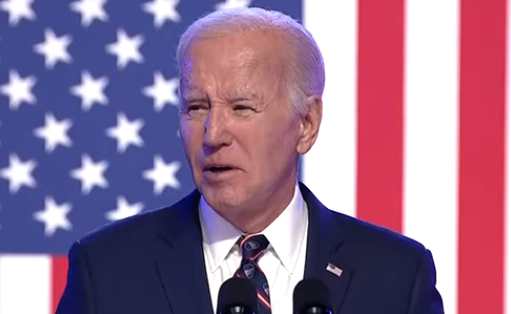WASHINGTON — The fate of U.S. President Joe Biden’s policy aspirations for the remainder of his first term hangs in the balance as the country awaits midterm election results that will determine which political party controls Congress for the next two years.
Several key Senate races were too close to call late Tuesday and election officials cautioned it could take days before the results of some contests are definitive.
All 435 seats in the House of Representatives are at stake and 35 of the 100 seats in the Senate are being contested. The Senate is currently evenly divided between Democrats and Republicans, with Vice President Kamala Harris able to cast tie-breaking votes for the Democrats, so Republicans need to pick up only one seat to take the majority.
Typically, parties that control both the executive and legislative branches of government lose seats during midterm elections. Many Congressional district have boundaries that have been drawn to give an undue advantage to either Republicans or Democrats, making it difficult for opposition party challengers to unseat incumbents.
More than 45 million people cast their ballots in early, in-person or mail-in voting before Tuesday’s official Election Day. Some analysts suggest the total vote in contests across the country could top the record 115 million tally set in the 2018 midterm elections.
Voters in many states also had questions on their ballots, including the legal status of abortion, sports betting and marijuana. Maryland voters decided to make cannabis legal but in several other states similar proposals appear headed for defeat.
History was made in two states. Maryland elected its first Black governor, Wes Moore, a Democrat. Massachusetts will have its first female governor and the country’s first openly lesbian chief executive of a state, Maura Healey, also a Democrat.
In Arkansas, former Trump White House press secretary Sarah Huckabee Sanders, a Republican, was elected governor as expected. Her father, Mike Huckabee, served as governor of the state for a decade.
In one key state contest for governor, Florida’s Ron DeSantis easily won reelection. Some Republicans are pushing DeSantis to oppose former President Donald Trump for the 2024 Republican presidential nomination, and he has not ruled out a possible run for the White House.
Trump, a Florida resident, said he voted for DeSantis on Tuesday in the state’s gubernatorial contest but has publicly been disparaging a possible DeSantis run for the White House. On the eve of the election, at a rally in Ohio, Trump said he would make a big announcement on November 15, which political analysts expect will be the launch of his 2024 presidential bid.
Officials in two Republican-controlled states, Missouri and Florida, refused to let federal Justice Department officials inside polling locations to monitor voting for possible voting rights violations. Top election officials for the two states questioned the Justice Department’s authority to have observers inside precincts.
Both Republican and Democratic parties monitored polls in many places across the United States to watch for any perceived irregularities, although actual fraud in U.S. elections is minuscule. The Justice Department is also monitoring compliance with federal voting rights laws in 24 states other than Missouri and Florida.
Economy, abortion on voters’ minds
In a recent Pew Research Center poll, more than three-quarters of U.S. voters said the economy was their top concern this election.
“The interest rates, the housing market, the price of gas, you know, you’re noticing in the grocery stores food is very, very expensive, and there’s items that you can’t even find anymore. It’s a huge, huge concern,” Amanda Douglas, a voter in the southeastern state of Georgia, told VOA.
After the U.S. Supreme Court decision in June ending the federal right to abortion, social issues have also motivated some voters.
“I think everybody should have access to health care [regardless of] what your personal views are on Roe v. Wade or abortion,” Georgia voter Theresa Allmend told VOA.
‘Inflection point’
Predicting a Republican victory in the House, Minority Leader Kevin McCarthy, the odds-on favorite to become House speaker if Republicans hold a majority, has promised to look for spending cuts in government programs favored by Biden.
He told CNN that Republican lawmakers would also more closely scrutinize continued U.S. arms and financial aid for Ukraine to combat Russia’s invasion, now in its ninth month.
Since the war started, Biden, with little congressional debate, has sent more than $27 billion in munitions and humanitarian assistance to the Kyiv government. But McCarthy said Republicans are unwilling to fund a continuing “blank check” without more analysis of what Ukraine specifically needs most.
Other Republican lawmakers have promised to launch investigations of the Biden administration’s performance during the first two years of his term, especially the ongoing influx of thousands of undocumented migrants across the southern border with Mexico that Biden, like former President Donald Trump, has been unable to halt.
Some Republican legislators are calling for hearings on business activities conducted by the president’s son, Hunter Biden, in Ukraine and China. U.S. prosecutors have already been conducting an investigation of the younger Biden’s business operations but have not brought any charges.
Meanwhile, Democrats have accused Republicans of planning to cut popular health care and pension benefits for older Americans if they take control of Congress, or subject them to regular five-year funding reviews.
Both Biden and Trump have campaigned respectively in recent weeks for Democratic and Republican candidates. Trump, who was ousted from office in 2020, still falsely claims he was cheated out of reelection by vote count irregularities.
Trump has strongly hinted at rallies that he is about to launch a new 2024 bid for the White House within days of the Tuesday voting, even as the U.S. Department of Justice and a Georgia state prosecutor are conducting wide-ranging criminal investigations of his election-related actions before leaving office and during the aftermath of his presidency.
Biden also said he plans to run for reelection in two years but has made no final decision.
Biden is calling Tuesday’s election an “inflection point” in U.S. democracy, attacking Republican “election denier” candidates who, adopting Trump’s refrain, have refused to accept the legitimacy of Biden’s victory two years ago.
The president has also contended that the economy remains strong, adding that hundreds of thousands of jobs have been added over the last year even as consumer prices have risen at the fastest pace in four decades. He has touted congressional passage of a massive infrastructure construction measure he proposed, although it has not proved to be an issue that voters have cared much about.
[content id=”52927″][content id=”79272″]








